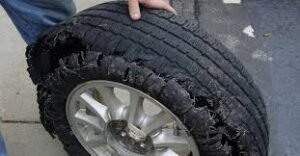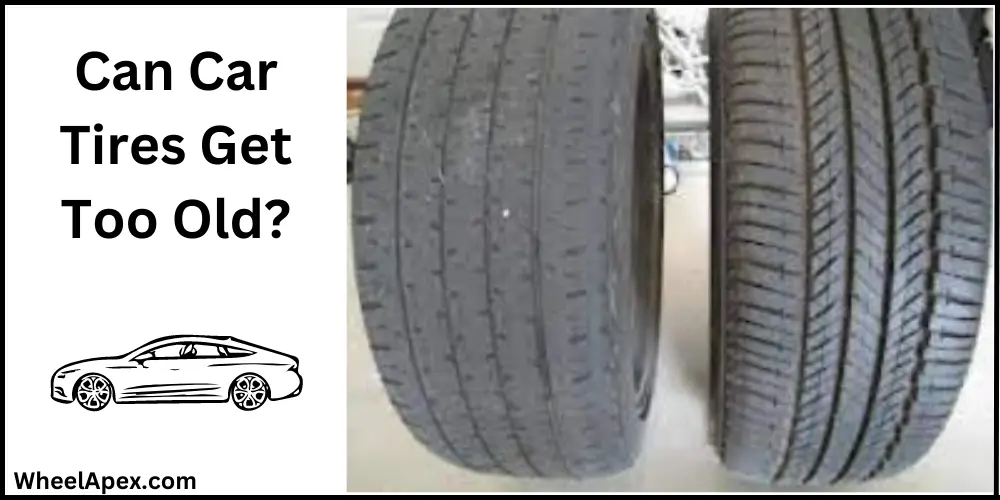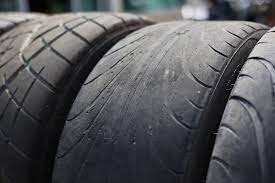In the realm of autos, we frequently focus on factors like motor execution, eco-friendliness, and state-of-the-art innovation. Nonetheless, one urgent component that will in general slip through the cracks until it’s past the point of no return is the age of our vehicle tires. We may carefully keep up with our vehicles, however, rarely do we think about the effect of maturing tires on security and execution. All in all, can vehicle tires go downhill?
Can Car Tires Get Too Old? In this article, we will dive into the response reverberating indeed, and we will dive into the secret risks that emerge when tires arrive at their termination date.
At the point when we contemplate tire security, our brains frequently leap to step profundity, arrangement, or filling pressure. While these variables are without a doubt significant, the age of the actual tire assumes a basic part in deciding its general condition and dry rot. Tires are exposed to different ecological and actual stressors, like outrageous temperatures, UV radiation, and street erosion, which can continuously debase their underlying honesty after some time.
Contents
Can Car Tires Get Too Old?
With regards to vehicle support, we frequently focus on checking the tire pressure, track profundity, and general condition. Nonetheless, a frequently disregarded viewpoint is the age of the tires. Numerous drivers expect that as long as the track looks great, the tires are in amazing condition. However, can vehicle tires go downhill? We will dig into the subject and comprehend the reason why tire age is a critical component to consider for your security out and about.
Understanding Tire Maturing

Tires are made of elastic, which normally corrupts after some time because of natural factors like temperature, UV radiation, and the synthetic compounds found on street surfaces. This corruption interaction is called tire maturing. It is vital to take note of that tire maturing still up in the air by the number of miles driven or the mileage on the track. Regardless of whether a tire is seldom utilized has a lot of track remaining. It can in any case turn out to be excessively old and hazardous.
Factors Influencing Tire Maturing
- Time: when in doubt of thumb, most tire makers suggest supplanting tires following six years, no matter what their track profundity. Nonetheless, it’s essential to take note that the pace of maturing can fluctuate contingent upon a few factors, for example, the tire’s development, stockpiling conditions, and the environment where the vehicle is worked.
- Intensity and Daylight: High temperatures and delayed openness to daylight can speed up tire maturing. If you live in a district with a blistering environment or consistently leave your vehicle under direct daylight for expanded periods, the maturing system of your tires might be sped up.
- Capacity Conditions: Legitimate tire stockpiling is critical to draw out their life expectancy. Tires ought to be put away in a cool, dry spot away from direct daylight, as exorbitant intensity and mugginess can accelerate the maturing system. Furthermore, tires ought to be avoided any synthetics or solvents that could disintegrate the elastic mixtures.
For what reason In all actuality does Tire Maturing Matter?
- Diminished Execution: As tires age, they bit by bit lose their versatility and become stiffer. This can adversely influence their presentation, including diminished footing, longer slowing down distances, and compromised taking care. In wet circumstances, maturing tires are more inclined to hydroplaning, which can be hazardous.
- Expanded Hazard of Disappointment: The more established a tire gets, the higher the gamble of encountering an unexpected disappointment like a victory. This is especially valid for tires that have been exposed to brutal natural circumstances, deficient upkeep, or expanded times of dormancy. A victory at high paces can prompt loss of vehicle control and possibly bring about mishaps.
- Legitimate and Protection Contemplations: In certain locales, driving with tires that are considered too old and hazardous can prompt lawful results. Moreover, insurance agencies might decline to cover harms or mishaps assuming it is resolved that the reason was obsolete tires.

Is It OK To Use 10-Year-Old Tires?
Utilizing 10-year-old tires isn’t suggested for well-being reasons. Over the long run, tires debase, prompting decreased foothold, expanded hazard of victories, and compromised taking care of. It’s significant to focus on security and supplant more established tires with fresher ones to guarantee ideal execution and limit the gamble of mishaps out and about.
Are 7-Year-Old Tires OK?
Seven-year-old tires might in any case be protected assuming they have been very much kept up with, put away appropriately, and have adequate track profundity. Be that as it may, tire elastic debases after some time, which can influence execution and well-being. It’s fitting to have them reviewed by an expert and think about supplanting them on the off chance that there are indications of breaking or critical wear.
How Do You Know If Tires Are Too Old?
Tires can be excessively old regardless of whether they have a lot of proceeds left. Check the tire’s sidewall for a four-digit Spot (Branch of Transportation) code. The last four digits address the week and year of production. On the off chance that they’re north of six years of age, think about supplanting them, as more established tires might crumble and become dangerous.
Can You Use 20-Year-Old Tires?
Utilizing 20-year-old tires is unequivocally deterred for security reasons. Elastic corrupts over the long haul, prompting diminished hold, expanded hazard of victories, and decreased dealing with execution. Makers regularly suggest supplanting tires every 6-10 years, regardless of whether the track looks great, to guarantee your well-being out and about.
Conclusion
While it’s not entirely obvious the age of your vehicle tires, a basic element ought not to be disregarded. Regardless of whether your tires have adequate track profundity, their age plays a critical part in deciding their general security and execution. Consistently reviewing the assembling date of your tires and taking into account the elements that influence their maturing can assist you with settling on informed conclusions about when to supplant them. Focusing on tire upkeep and complying with producer rules will guarantee your security out and about and give you inner harmony. Keep in mind, with regards to your tires, age matters!


